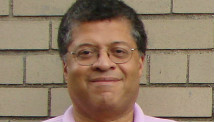NEW ORLEANS (AP) — The company that supplied electricity to the Super Bowl says the blackout that halted the big game was caused by a device it installed specially to prevent a power failure.
But the utility stopped short of taking all the blame and said Friday that it was looking into whether the electrical relay at fault had a design flaw or a manufacturing defect.
The relay had been installed as part of a project begun in 2011 to upgrade the electrical system serving the Superdome in anticipation of the championship game. The equipment was supposed to guard against problems in the cable that links the power grid with lines that go into the stadium.
"The purpose of it was to provide a newer, more advanced type of protection for the Superdome," Dennis Dawsey, an executive with Entergy Corp., told members of the City Council. Entergy is the parent company of Entergy New Orleans, the city's main electric utility.
Entergy officials said the relay functioned with no problems during January's Sugar Bowl and other earlier events. It has been removed and will be replaced.
All systems at the Superdome are now working, and the stadium was to host a major Mardi Gras event Saturday night, said Doug Thornton, an executive with SMG, the company that manages the stadium for the state.
The relay was installed in a building near the stadium known as "the vault," which receives a line directly from a nearby Entergy substation. Once the line reaches the vault, it splits into two cables that go into the Superdome.
Sunday's power failure cut lights to about half of the stadium, halting play between the Baltimore Ravens and San Francisco 49ers and interrupting the nation's most-watched sporting event for 34 minutes.
Not long after the announcement, the manufacturer of the relay, Chicago-based S&C Electric Co., released a statement saying that the blackout occurred because system operators had put the relay's so-called trip setting too low to allow the device to handle the incoming electric load.
The equipment was owned and installed by Entergy New Orleans.
"If higher settings had been applied, the equipment would not have disconnected the power," said Michael J.S. Edmonds, vice president of strategic solutions for S&C.
In a follow-up statement, Entergy said that tests conducted by S&C and Entergy on the two relays at the Superdome showed that one worked as expected, the other did not.
Entergy spokesman Mike Burns said both relays had the same trip setting.
Entergy's announcement came shortly before company officials went before a committee of the City Council, which is the regulatory body for the company.
During the committee hearing, council member Susan Guidry asked Entergy executives whether they were "fairly certain" that the relay was faulty.
"That is correct," Dawsey said.
However, when asked if the outage was caused by the design or a defect in a part of the equipment, Entergy New Orleans CEO Charles Rice said that had not been determined.
"The equipment did not function properly," Rice said. "At this particular time, based upon our analysis, we cannot say definitively that there was a defect in design. What we do know is that the equipment for some unknown reason, at this particular time, did not react the way that it should have."
Asked if Entergy and SMG still plan to hire a third-party investigator to get to the bottom of the cause, Rice said that possibility remains open.
"We'll work closely with SMG, and if there is a need for a third-party investigation, we will do that," Rice said, adding that Entergy was also working with the relay manufacturer.
Shabab Mehraeen, an assistant professor of electrical engineering at Louisiana State University, said relays are common electrical fixtures in businesses and massive facilities such as the Superdome.
"They are designed to keep a problem they sense from becoming something bigger, like a fire or catastrophic event," he said.
The devices vary in size. Mehraeen, who was not familiar with the relay at the Superdome, said he "wouldn't be surprised if it was bigger than a truck."
The reasons the devices fail are the subject of much academic research into the interaction of relays with the complex electrical systems they regulate.
"It's not unusual for them to have problems," Mehraeen said. "They can be unpredictable, despite national testing standards recommended by manufacturers."
Entergy and SMG had both upgraded lines and equipment in the months leading up to the Super Bowl. Rice said the new gear, with the faulty relay, was installed as part of a $4.2 million upgrade by Entergy that included a new power line dedicated solely to the stadium.
In a separate project, SMG replaced lines coming into the stadium after managers expressed concerns the Superdome might be vulnerable to a power failure like the one that struck Candlestick Park during an NFL game in 2011.
Thornton stressed Friday that the dome was drawing only about two-thirds of its power capacity Super Bowl night. He said typical NFL games in late August or September can draw a little more.
Friday's announcement appeared to absolve Superdome officials of any missteps in the blackout.
City officials had worried that the Super Bowl outage might harm New Orleans' chances of getting another NFL championship game.
But NFL Commissioner Roger Goodell downplayed that possibility, saying the league planned to keep New Orleans in its Super Bowl plans. Mayor Mitch Landrieu said the city intends to bid for the game again in 2018.
___
Associated Press Writer Michael Kunzelman in New Orleans contributed to this report.

